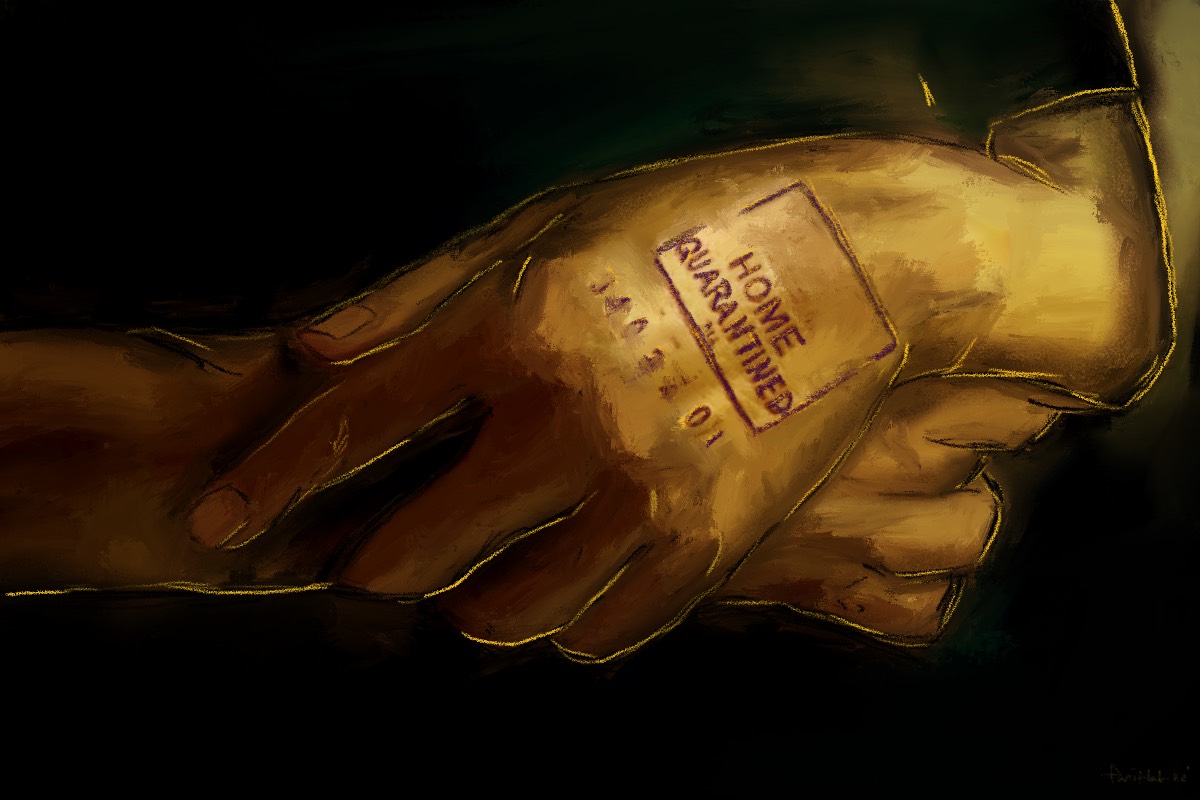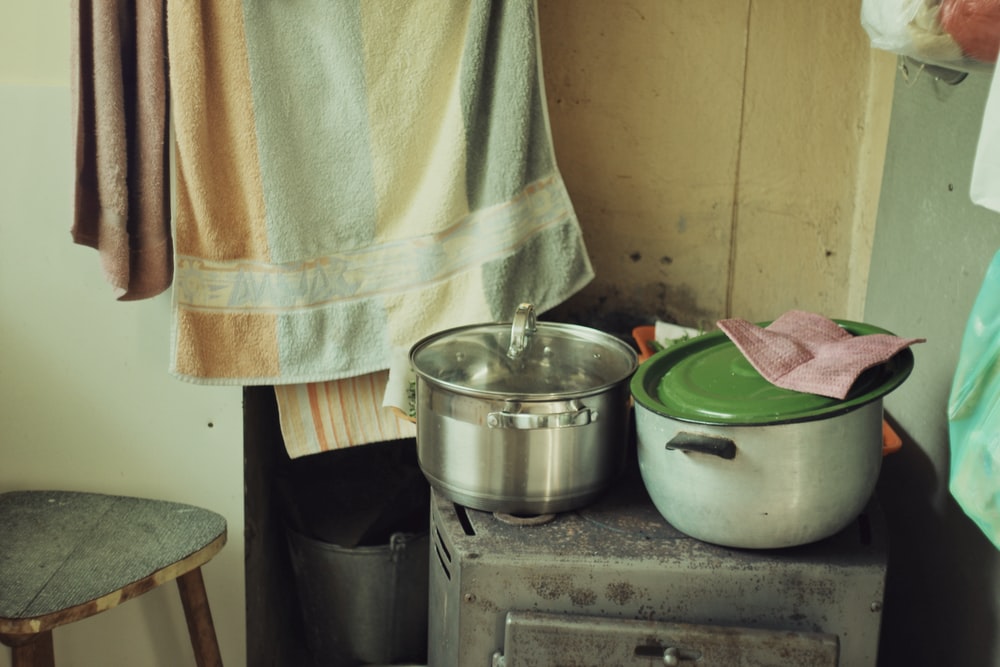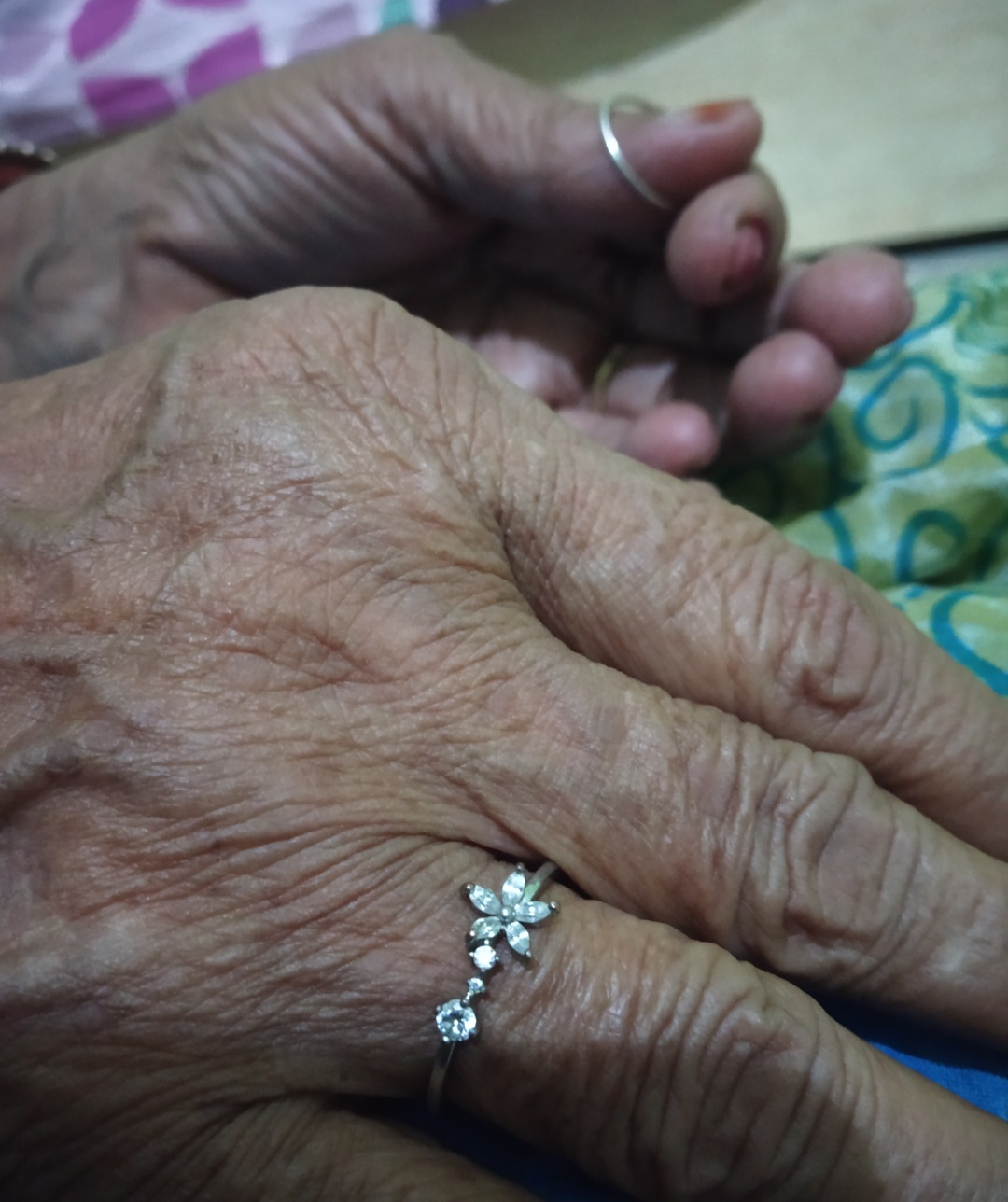The weeks of lockdown continue to march on as we step well into April. Whether the national lockdown is extended or goes through a phased exit remains to be seen even as COVID-19 cases continue to rise steadily in various corners of the country.
Being confined at home may be a welcome proposition for some, but there are many others who do not have the luxury of facing easy circumstances. Reports of domestic abuse have increased world over, and India is no exception. Yet others are butting heads with the centuries-old patriarchal machine at home.

That’s not to speak of the lakhs of migrants workers who took to the roads – many are still stranded far from home and unable to access government-sanctioned rations properly.
At a time when much is uncertain, one thing is for sure: the turbulence the world is facing is here to stay for a while.
So write in to us at livewire@thewire.in with your experiences – in no more than 200 words. Mark the subject matter as ‘The New Normal’ and include your age and where you’re from in the mail.
Here are some of the accounts that were emailed to LiveWire this past week.
Bhawna Jaimini, 28, Mumbai
Sitting inside the safe haven of my house, I am forced to acknowledge my privilege that separates me from millions who are struggling to put food on the table for their children – my biggest worry so far has been stocking up on enough imported tuna cans, which my cat loves.
Yesterday, when I went to buy groceries at the local store, the man in front of me returned empty handed because the shop didn’t have the Rs 20 per kg rice. How do I reconcile these multiple realities I am confronted with? I still don’t know but I hope at the end of this, humanity will realise that we got it all wrong so far.
I work directly with marginalised communities on issues of built environment. Most of these communities live in densely packed settlements where it is next to impossible to practice social distancing. The constant fear and anxiety of an outbreak in these settlements looms and all I can do is practice ‘yoga for anxiety’ on my balcony every day.
Also, I miss panipuri. When all of this ends, I am going to give a thank you note to the panipuri wale bhaiya.
Bhagyarathna, 21, Bengaluru
I have always been awestruck by my mother’s energy and my brother’s lethargy. This lockdown prompted my mother to ask for my help with the cooking and cleaning. She never bothered to ask my brother – who expects us to serve him everything, even a glass of water.
When my father and I tried to convince my brother to help out, he said, “Well, normally, whose work is it to do the household chores? Women.”
I quickly said that I had heard one of the accused in the Nirbhaya case utter the same sentiments. His reply came swiftly, “Forget me, dad, will she seek help in her ‘future home’ too?”
For the first time in my life, I felt isolated (forcibly) from my family. This isolation, without being infected by COVID-19, is going to be the new normal – for the rest of my life.
Though I’ve come across estimates that it will take months for the coronavirus outbreak to end, I still have hope that the pandemic will die down soon. But when and how, if ever, can these minds who still think of women as second class inferior beings – which are more in number than the coronavirus-affected people in India – be cured?
The key seems to lie with parents. I wish more parents would start bringing up their sons and daughters as equals and stop practicing social distancing with their daughters.

Naresh Deoshi, New Delhi
DIY learning of the most unexpected sort has gripped me during the coronavirus lockdown. Armed with screwdrivers, pliers, wrenches and soldering iron, I’ve been dismantling and reassembling electric and electronic items in order to figure out the science behind them.
The results of these brave attempts at learning through reverse engineering – I’m afraid to announce – have been mixed.
For two days now, the household has had to make do without the services of an ironing press, two ceiling fans, and the door bell. The TV, ever since it had my blessing, keeps going blank every few minutes and then comes on again. I call it partial success.
The phones have been strictly kept out of my reach, but I have laid my hands on an old conked-out laptop and managed to get a few lively squeaks out of it. It’s still work-in-progress.
Meanwhile, family members have conspired to throw a spanner in my works. They keep giving me chores. Buy veggies, chop the veggies, do the dishes, bathe the dog, feed the dog, mop the floor. It’s their ploy to keep me off the refrigerator and air conditioner.
That’s the new normal for us – unfettered curiosity and familial intrigue.
Prachi, 20, Chandigarh
I feel like I’m drowning and there’s nothing I can do about it. The world outside is overflowing with chaos and all that I’m able to do is sit at home and hope for a better outcome. How am I supposed to have hope when I feel like I barely even have myself?
As each day passes, my mental health gets worse. My mind constantly feels exhausted – like it’s on an endless loop of my worst nightmare. I’ve been so angry and irritated at everyone around me. I don’t even know how I should be reacting or what I should be doing. It’s all so blurry and messy.
And the worst part is thinking about what’s yet to come. Is this the end or the beginning?
Shaira Mohan, 33, Kuala Lumpur
Being a mom to a toddler is hard enough, but being one while moving countries – we just moved from New Delhi – for the spouse’s job and walking face-first into a global health pandemic is quite another.
While the husband works from home, sequestered in another room, I often find myself physically drained trying to ace all the nuances of being a two-year-old’s mother. Occasionally, I dole out curses to the wretched coronavirus for laying siege to my plans of finding a nanny.
But then I remind myself to be grateful. My husband gets equally and willingly involved in household chores and plays an active role as the second parent. Not a babysitter, but a parent. The fact that I can even consider hiring a nanny is a privilege ill-afforded by many others.
Husbands are not babysitters. Whether they have working wives or not, they will always be parents too and should be equally invested in every aspect of parenting.
But many mothers in India and the diaspora are not as lucky as I am – including women in educated households. They too are tucked away into boxes created by archaic patriarchal minds. Dare they have dreams or ambitions of their own beyond producing children and being perfect housewives.
‘Equality’ remains a sad illusion.

Sonakshi, 20, FLAME university, Pune
Over the last three weeks, my university has tried to adjust to this new normal of online classes. As a part of the graduating batch, we are barely two weeks away from our finals and the university wants to go on like usual.
While it is helpful to try and continue classes as far as possible, it has a downside. The number of assignment submissions have shot up owing to the need to gauge ‘class participation’. With the constant influx of negative news and uncertainty over what the future may hold dangling over our heads, everything has been overwhelming.
Between trying to manage our anxieties and be an active participant in the household, having such a rigorous evaluation pattern has been an added burden. Time and again, students have requested the university to be more understanding and reduce the rigour of the evaluation, but to no avail. Our university has managed to make mental health a management negotiation while proudly informing newspapers of how they are looking out for all stakeholders.
It has never been clearer than now, that the institute’s business model places students at the bottom of their priority list.
Anjana Ashok, 25, Germany
I realised right in the first week of being stuck at home that being a Ph.D student, I cannot afford to wait for ‘normalcy’ to return, with no knowledge of when it would happen. A schedule started taking shape, thankfully without much effort, and it is saving me from the crisis of chronic dissatisfaction from fussing over time spent away from my thesis. I like this schedule, and want to keep it even after the quarantine phase is over.
I am constantly reminded about how I fortunate I am to be able to lead a fairly normal life, because work requires only my laptop and an internet connection to login to the cluster, because the warmth of my home makes up for the inability to be at my office desk, because a sum of money gets credited into my account regardless of what remains closed in the world outside.
My heart goes out to those who have to protect themselves from a pandemic while living on the streets, or providing essential services, and to people who have lost a loved one to the virus. And I have boundless gratitude for the health workers who are at the front lines day in and day out.
Ganapathy Raju, 59, Bangalore
At the crack of the dawn, I was ready with a quick fix
A brilliant solution, a chemical mix.
The virus defiant, hungry and angry
Fearing the city, migrants on the road, across the country.
Their life in a tailspin, situation not a win-win
Caught in a spinner, their life hanging in between.
Makers of policy know not what they do
Sufferings of the millions they can’t undo.
Haves and have nots, poles apart
In the life they live, until they depart.
It is a case of who will bell the cat
Reality is grim, uncovered by the virus from the bat.
Maryam Fatima, 19, Hyderabad
It is indeed a test of patience and faith when everything around you is this uncertain. My grandparents, both in their sixties, always have their hands full. They aren’t amongst the ones who can sit at home and stick to a monotonous routine – especially my grandfather, who hasn’t retired yet.
For my grandmother, the chores have only doubled. A humdrum schedule isn’t what Nanu is used to. Moreover, we haven’t stayed without seeing each other for this long, but considering the gravity of the situation, it is staying away that has become an expression of love.
“Such extraordinary times! Can’t even meet our own children,” is what they initially said. Although they understand it is for their own good, the need of the hour is emotional support and communication.
“We won’t travel if you say so, but, a video call is a must.” And we do it every day. “Hope, and hope alone, beta, can dispel darkness,” is what they often tell me.
The older adults need us now, more than ever. If it isn’t easy for you, it isn’t for them either. Talk to them. Cheer them up. Become their ‘hope’.

Prerna Singh, 23, Bangalore
I work for an e-learning company and we recently had to bear the brunt of economic slowdown with salary cuts for an indefinite period of time. I was upset and cribbing about it.
Then, while scrolling through my phone and reading the news, I realise that it’s the middle-class prerogative to even be able to work from home and be paid while lakhs of people face a complete loss of income and face unemployment for an indefinite period of time.
And thanks to my job, I’ve not been touched by the ‘kya karein‘ syndrome. I have lots of time to sleep, clean, read, watch Netflix, and at last when I start getting bored, I can get to work and still finish it in time.
I am reminded of my privilege of being amongst the least affected and I feel humbled.
Mumtaz Rehman, 20, Gurugram
Hate can be spread very easily and to overcome it demands patience. It felt so great to see everyone standing united to fight against the novel coronavirus until another virus – communalism – stepped in again. Everyone started losing it and hate poured out on the internet and on the ground.
What keeps nagging me is how people lose out their tempers, start playing blame games and start spreading hatred targeting one community on cue. Instead, maybe there should have been discussion with the same level of energy about migrant workers, people who work at our homes, healthcare workers who are asking for more medical equipment and the need to stop the forwarding of fake messages.
No one is blind enough to see the level of hatred being spread. Standing united against this other virus is also very important. Look out for all those who are suffering, after all, unconditional love never costs much.

